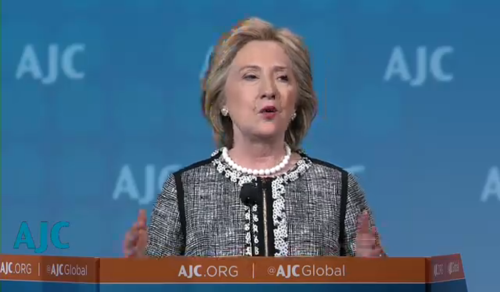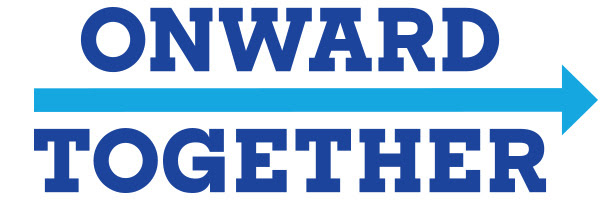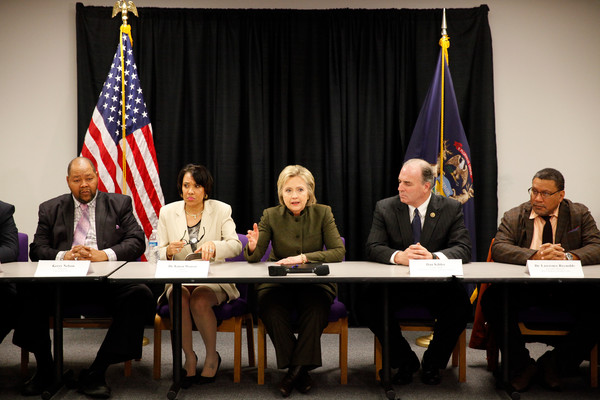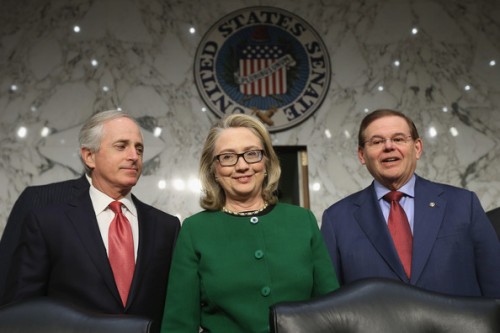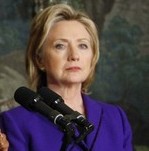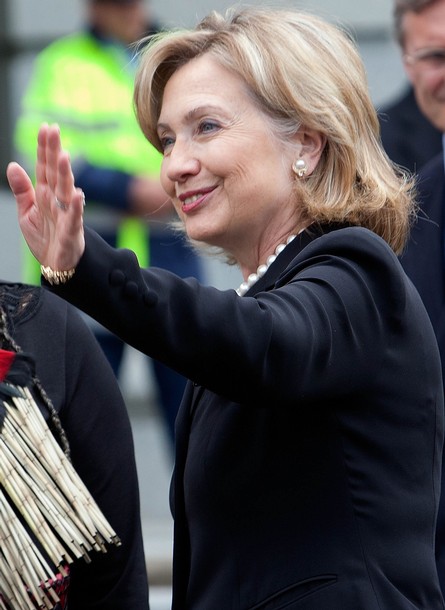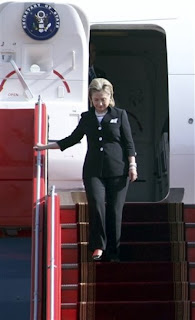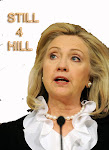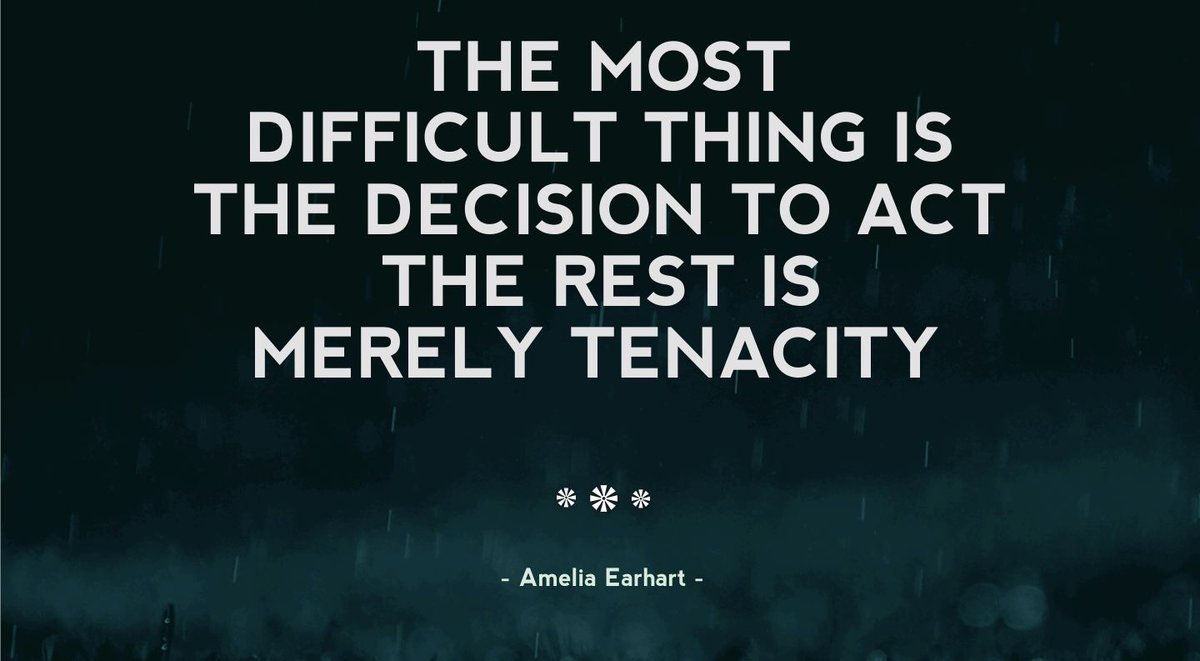Having begun her long day by arriving a tad late for a bilateral between President Barack Obama and Japan’s Prime Minister Yoshihiko Noda in Phnom Penh, Cambodia, Mme. Secretary hopped on her “Big Blue Bird” and took off for the troubled Middle East. Her first stop was Israel where we see her with PM Benjamin Netanyahu. From there, she will travel to Ramallah to meet with Mahmoud Abbas, and then to Cairo and a meeting with President Morsi.
This slideshow requires JavaScript.
Adding in, here, an interesting and informative portion of today’s press briefing from Victoria Nuland.
TRANSCRIPT:
12:44 p.m. EST
MS. NULAND:All right. Happy Tuesday, everybody. I hope you all got the notice that the Secretary has split off from the presidential party now. She’s on her way to Jerusalem. She’ll have her first meeting there with Prime Minister Netanyahu shortly after landing. It’ll be quite late this evening in Jerusalem time. To the extent that we have information to read out from her various meetings, we will do that, but as you know, her formal press posture is that she’ll have sprays at each of those – of the meetings on this trip. So we’ll try to stay in touch with you over the next couple of days as this proceeds.
Why don’t we go to what’s on your minds.
QUESTION:Do you have any news about Hamas claims that the calming down will take place tonight at 9 o’clock their time?
MS. NULAND: I don’t have any specifics to report to you either with regard to the ground situation or with regard to the state of the diplomacy. As I said yesterday, the President, the Secretary, all of us are intensely involved here, but we’re not going to be sharing details in public until there’s something to report.
QUESTION: So is it fair to assume that Mrs. Clinton will oversee the signing of calming down between Israel and Hamas under the auspices of Egypt?
MS. NULAND: Again, as you know, intensive diplomacy is ongoing. The President and the Secretary have both been on the phone nonstop with regional leaders for a number of days. The purpose of her trip is to continue and intensify that engagement now, face to face, in service to the goal of trying to de-escalate this violence and restoring calm.
QUESTION: And lastly, should we interpret her trip as a good sign that there’s something in the offing, a calming down in the offing?
MS. NULAND: Again, Said, I think we are all hoping for a de-escalation, we are all hoping for a restoration of calm, we’re all hoping to open space for deeper, broader conversations. That is obviously the goal we all share.
QUESTION: Ma’am —
MS. NULAND: Jill.
QUESTION: What about – Toria, realistically, what can the Secretary do? I mean, even if you look at a ceasefire or a calming down, a lot of that seems linked to larger issues, medium range or long range. It doesn’t appear that they are simply going to stop fighting, or at least Hamas, unless there is some resolution of other issues – issues that affect Gaza, for example. So what, realistically, do you think, even broadly, can she accomplish?
MS. NULAND: Well, as we’ve been saying for some time, we have to obviously start with a de-escalation of this conflict. We have to see an end to the rocket fire on Israel. We have to see a restoration of calm in Gaza. And the hope is that if we can get through those stages, that will create space for the addressing of broader issues, but I don’t want to prejudge. This is obviously ongoing and live diplomacy.
QUESTION: And just one other thing: Some have said that obviously she would not go if there were going to be a ground invasion at the time that she hits the runway. Is that a fair assumption, that she – that there was some sort of knowledge that the U.S. had that there would not be a ground invasion, ergo she wouldn’t go?
MS. NULAND: As I said yesterday, I’m not in a position to speak to the ground situation at all, other than to say that I think all of the parties involved have expressed a preference to solve this peacefully, to solve this diplomatically. That is what we are all trying to support and assist, and that is what we are all hoping for.
QUESTION: On this point —
QUESTION: The United States —
MS. NULAND: Said. Said.
QUESTION: On this point, just a quick follow-up on this point, Israeli sources say that they want a period of 24 hour of calm before they sign any truce. Do you support or do you advocate such a – like a period of calm before signing anything?
MS. NULAND: Again, I’m not in a position here to get into the substance of any of the discussions that are ongoing. There are a lot of discussions going on involving a lot of different parties. When there’s something to announce, I’m sure it will be announced, Said.
Sir, can you tell me who you are?
QUESTION: Yeah, Oren Dorell from USA Today. The Hamas leaders have said that they would like the blockade to be lifted as – if they’re to stop their rocket fire. What is the United States position on that?
MS. NULAND: Again, you’re trying to take me into the tactics of diplomacy, the conversations that are ongoing among lots of different parties who are trying to support a de-escalation here. Don’t think that’s productive to the process for us to be getting into the back-and-forth here.
Samir.
QUESTION: What’s the Quartet doing in this crisis? Doing anything?
MS. NULAND: As a formal matter, the Quartet has not met, but as you know, the Secretary’s been in touch with Lady Ashton. In fact, she was in touch with some of her European counterparts today. She had phone calls with German Foreign Minister Westerwelle, French Foreign Minister Fabius again, with Quartet Representative Blair. The Quartet itself hasn’t met, but the Quartet envoys and representatives have all been active. As you know, UN Secretary General Ban Ki-moon was just there. I think he may still be in the region, in fact.
Jill.
QUESTION: Toria, one more. Why was it so important for the Secretary to go? I mean, it involves the United States in a very obvious and maybe dangerous way because she will be on the ground in a – not physically, I mean, but diplomatically, it could all backfire. Why is it so important for her to go?
MS. NULAND: Well, again, I think, as we said in the statement that we released announcing her travel, and as Ben Rhodes said when he briefed the White House Press Corps earlier today from Phnom Penh, we have been, the President has been, she has been, actively engaged on the phone. But sometimes, there’s no substitution for showing up, as the Secretary herself likes to say, for talking face to face, for doing what you can in person. And the President and she obviously thought that her going and actually sitting down with leaders – with Prime Minister Netanyahu, with President Abbas, and with President Morsi – could help de-escalate the situation. So it was obviously important to leave no stone unturned.
QUESTION: Toria, I realize you don’t want to get into any of the details that we might find useful or helpful, but despite that, it is correct that the Administration would like to see this – any kind of de-escalation, whether that would be a formal ceasefire or an informal one side stops so the other side then stops; is that correct? You would just like to see – even if it’s temporary, fleeting, you would like to see a de-escalation of any kind; is that correct?
MS. NULAND: We have spoken about this in terms of a de-escalation, because that’s obviously a first step to help prepare the way for anything else. We obviously need to see this violence come down.
QUESTION: Right, right, but you would be happy with even an informal cessation of hostilities?
MS. NULAND: Again, beyond what we’ve said, I’m not going to characterize X as acceptable, Y as not acceptable. That’s a subject for negotiations.
QUESTION: Well, but I —
MS. NULAND: Matt, I’m not going to.
Nadia, please.
QUESTION: Wait, I’m not done.
MS. NULAND: Go ahead.
QUESTION: I’m not done. I don’t understand why you can’t say that any halt in violence would be a good thing in the Administration’s eyes.
MS. NULAND: Any de-escalation is a step forward. We want to see this de-escalated.
QUESTION: Okay. So it doesn’t necessarily have to be a durable – meaning long-lasting, a fixed period, six months, as long – at least at the beginning – as long as the fighting and the dying of people stops, that’s okay, at least in the short term; is that correct?
MS. NULAND: Matt, I am not going to limit, characterize the steps necessary here —
QUESTION: Okay. Well, surely you’re not —
MS. NULAND: — because the parties are talking, we’re going to be part of that, and we’re not going to negotiate it here from the podium. We’re not going to characterize it here from the podium.
QUESTION: Well, okay, fine, but surely you’re not saying that you’re okay with the violence continuing, are you?
MS. NULAND: Matt, what have I said seven times now?
QUESTION: All right. Then – frankly, you’ve said a lot, but it hasn’t really amounted to an answer. So in his briefing —
MS. NULAND: We’re going to move on now. We’re going to move on to Nadia, please.
QUESTION: In his briefing —
MS. NULAND: Go ahead, Nadia. Go ahead, Nadia, please.
QUESTION: Toria —
QUESTION: In his briefing – in – I’m sorry, Toria. I’m not done, and this is an important question. In his briefing to the White House Press Corps, Ben Rhodes was asked why he would not use the word “ceasefire,” and he said that’s essentially – I’m paraphrasing – he said no, and then he proceeded not to use it again and instead talked about de-escalation.
Does the Administration have some aversion to calling this a ceasefire or – and if it doesn’t, why not just use it? And if it does, what’s the aversion?
MS. NULAND: You know very well from having watched these kinds of situations unfold that there are many ways that this can de-escalate. I’m not going to prejudge here, and I think Ben didn’t want to prejudge how it happens. So your six efforts to get us to do that are not going to be successful.
Nadia, go ahead.
QUESTION: Victoria –
MS. NULAND: Yeah.
QUESTION: — you know that the U.S. has been criticized for not taking a leading role earlier to end the conflict. Just to follow up on Jill’s questions, if you felt that the Secretary needed to be there physically to meet with the leaders, why didn’t she go there in the beginning of the conflict? Was it because she was in Asia or because of the calculated decision on your part that you needed to wait a few more days?
MS. NULAND: Well, first of all, both the President and the Secretary have been extremely active. As you can see, the President, I think, in the past 24 hours has spoken with Egyptian President Morsi, for example, some three times. The Secretary’s made more than a dozen phone calls. So we have been very active in supporting all of the various efforts to try to de-escalate this. The judgment was that it had gotten to a stage where actually sitting face to face was – would be of value, so that was the decision that the Secretary and the President made.
QUESTION: I just wondered, if it’s possible, to walk us through when that decision was taken. Is it because the Egyptians have said that now we are in the process of getting a ceasefire and it’s important for the Secretary to be there? Is this the precise timing for her to be in the region?
MS. NULAND: Again, I think the President and Secretary were obviously together; they had a chance to – they have been comparing notes over the last couple of days about how this situation has been evolving. And the conclusion was that her going personally and sitting with leaders who she knows well had the potential to be helpful to the various parties in trying to seek a de-escalation. So beyond that, I don’t want to parse it too finely, Nadia.
Anything else on this subject? Please, can you —
QUESTION: I have some more on the logistical —
QUESTION: Kimberly Halkett, Al Jazeera English.
MS. NULAND: Yeah.
QUESTION: I’m just wondering how helpful it will be, though, given the fact that the Secretary is only meeting with the Palestinian Authority leader, and, who is at odds with Hamas – given the fact that the U.S. is only speaking to one of the two sides in this conflict, how productive can these discussions really be?
MS. NULAND: Well, as we’ve been saying for some time, there are different leaders in the region, around the world, who have influence with different actors in this situation. So we have Egyptians and Turks and Qataris and others making very strong representations to Hamas. The Secretary obviously thought that it was important to see President Abbas in this – on this trip because he is the interlocutor and the representative legitimately elected of the Palestinian people with whom we interface. So that is the role that we will play. We will work with the Israelis, we will work with President Abbas, and we will work with President Morsi, and others have more direct influence than we do with Hamas.
QUESTION: But do you think by shutting out Khaled Meshaal that you are going to be able to help bring about something beyond a ceasefire, a lasting solution, as I think you called it?
MS. NULAND: Again, the first step is a de-escalation, which the hope is then that can create space for something deeper. But again, we have to take this one step at a time.
Said, yes.
QUESTION: Sorry, Toria, just a quick follow-up on the humanitarian situation.
MS. NULAND: Yes.
QUESTION: There has been reports by the Palestinian Red Crescent, by UNRWA, by ANERA, by almost everybody speaking of a difficult humanitarian situation – shortages in water, food, medicines and so on. Suppose there is a calming-down period; would the United States send in direct aid to Gaza?
MS. NULAND: Again, you’re asking me to get ahead of where we are. But as you know, we have always supported the UN agencies and others providing humanitarian assistance through appropriate and agreed channels. Those channels do exist, and obviously the goal of all of this diplomacy is to relieve the suffering of civilians, whether they are Israelis or whether they are Palestinians.
QUESTION: So is it plausible just to break the blockade for a couple of days, or three days, or four days?
MS. NULAND: Again, there are established channels for getting humanitarian aid in, and those are the channels that should be used.
QUESTION: According to the U.S. officials, there are three —
MS. NULAND: Can you tell me who you are, please?
QUESTION: Wi Xu Diao from CCTV. So according to two U.S. officials, there are – three U.S. Navy warships are sending to – near Israel to – just in case evacuation needed. So these are supposed to be – come back after Thanksgiving. Can you confirm that and when the – how long they will be delayed, for their homecoming?
MS. NULAND: The Pentagon has spoken to that issue today or yesterday in terms of contingency planning, so I’ll send you to them for any more detail.
Goyal, still on this subject?
QUESTION: Toria – no.
QUESTION: No. I have two more, one of which – I suspect one of which is easy, and one of which is logistical and it may have been asked already.
So just the first one, which I think is the easy one: Would you – you keep the phrase de-escalate – don’t worry, I’m not going to try and get you to change that, but when you – when the Secretary is in her talks, is it fair to say that she is less about an – less talking about an imminent de-escalation than in how to hold or make durable a longer-term solution? I mean, obviously she’s not involved in mediating a truce, or whatever you want to call it, between Hamas and Israel, because you guys don’t talk to Hamas. Is it her goal to try and make whatever might come out of negotiations – those negotiations that are going on, to make that hold and be longer than just some quick, temporary fix? Is that fair?
MS. NULAND: I think everybody involved in trying to support a de-escalation here wants to see not just a tactical end to the violence, but wants to see the conditions improve for being able to address some of the underlying issues. But the way that unfolds and how much is going to be possible in the next 36 hours I think very much depends on the meetings that she has and what she finds.
QUESTION: You don’t – are you saying that you don’t want to rule out the fact that she might get involved – and obviously not with Hamas directly, but that she might get involved in trying to mediate an initial de-escalation? You don’t want to rule that out, or is that something that is —
MS. NULAND: I think it completely depends on where the situation is in the – in four hours from now or six hours from now when she lands.
QUESTION: All right. And then the second one, which is logistical and may have been asked before, is that when she is in Egypt, when she goes to Cairo tomorrow, is she going to see anyone other than Morsi? Are there other people coming in to town, like the Turks? I mean, I know Ban Ki-moon is out there. Is she going to be seeing anyone other than the Egyptians in her short time in Cairo?
MS. NULAND: The current schedule that we have is the schedule that we announced, that she will, this evening, very late Jerusalem time, see Prime Minister Netanyahu; that she will early in the morning tomorrow see President Abbas in Ramallah; and then she’ll go to Cairo to see President Morsi. That’s all I have in terms of schedule. I don’t have anything else at the moment in terms of other meetings or other third-country representatives on this trip. But you know how these go. That could change, so stand by. If we have something to announce, we will.
Please.
QUESTION: How do you view the legal status of Gaza? Is it occupied? The Israelis are not there? Is it autonomous?
MS. NULAND: I don’t think our position on Gaza has changed. There’s nothing new there.
Please.
QUESTION: When you talk about improving conditions for addressing underlying issues, can you be any more clear about what issues you’re talking about?
MS. NULAND: Well, it’s the full range of issues, but obviously this goes to the underlying security of Israel and that the end of attacks from Gaza into Israel should be halted not simply temporarily, but in a sustained way. It goes to the condition of civilians in Gaza. And it goes to the ability of Israelis and Palestinians to get back to the table about a lasting settlement, which is obviously the long-term solution for this.
QUESTION: Victoria.
MS. NULAND: Please on this, Samir – Said.
QUESTION: There were reports that there are a couple dozen servicemen, American servicemen, in – actually in southern Israel that were hurriedly removed for safety. Do you know anything about that? Do you know anything about (inaudible)?
MS. NULAND: I don’t. It sounds like something to ask the Pentagon. I don’t have anything on that.
Anything else on this subject?
QUESTION: Got one more logistical one that I forgot. Is she definitely coming directly back to Washington after Cairo or are you leaving open the possibility that she could make another stop, either in the region or in Europe, or, I don’t know, in Africa?
MS. NULAND: At the current moment, we have nothing after Cairo. If that changes, we’ll let you know.































































